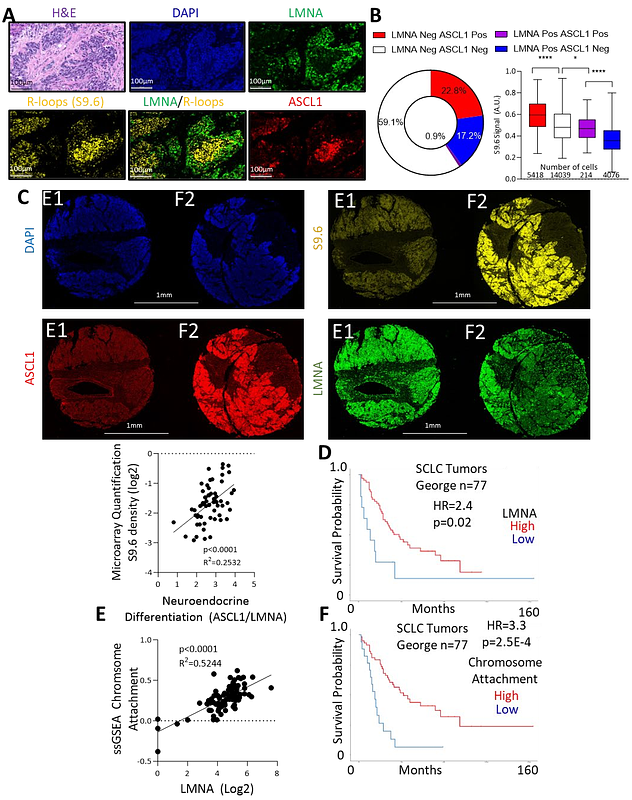Lamin A/C Deficiency Drives Genomic Instability and Poor Survival in Small-Cell Lung Cancer through Increased R-loop Accumulation

Lamin A/C Deficiency Drives Genomic Instability and Poor Survival in Small-Cell Lung Cancer through Increased R-loop Accumulation
Schultz, C. W.; Saha, S.; Dhall, A.; Zhang, Y.; Desai, P.; Pongor, L. S.; Scheiblin, D. A.; Magidson, V.; Sun, Y.; Redon, C.; Kumar, S.; Krishnamurthy, M.; Dias, H. B.; Aksenova, V.; Giordano, E.; Takahashi, N.; Nirula, M.; Arora, M.; Tabe, C.; Thomas, M.; Kumar, R.; Arakawa, Y.; Jo, U.; Teicher, B. A.; Aladjem, M. I.; Lockett, S.; Dasso, M.; Pommier, Y.; Sharma, A. K.; Thomas, A.
AbstractLamin A/C (LMNA), a key component of the nuclear envelope, is essential for maintaining nuclear integrity and genome organization [1]. While LMNA dysregulation has been implicated in genomic instability across cancer and aging, the underlying mechanisms remain poorly understood [2]. Here, we investigate LMNA\'s role in small-cell lung cancer (SCLC), a highly aggressive malignancy characterized by extreme genomic instability [3, 4]. We demonstrate that LMNA depletion promotes R-loop accumulation, transcription-replication conflicts, replication stress, DNA breaks, and micronuclei formation. Mechanistically, LMNA loss disrupts nuclear pore complex distribution, reducing phenylalanine-glycine (FG)-nucleoporin incorporation and impairing RNA export efficiency. Furthermore, we show that LMNA expression is epigenetically repressed by EZH2 during SCLC differentiation from neuroendocrine (NE) to non-NE states. Clinically, low LMNA levels correlate with significantly worse survival in SCLC patients. These findings uncover a novel role for LMNA in safeguarding genome integrity and shaping tumor heterogeneity, with broad implications for cancer and aging.